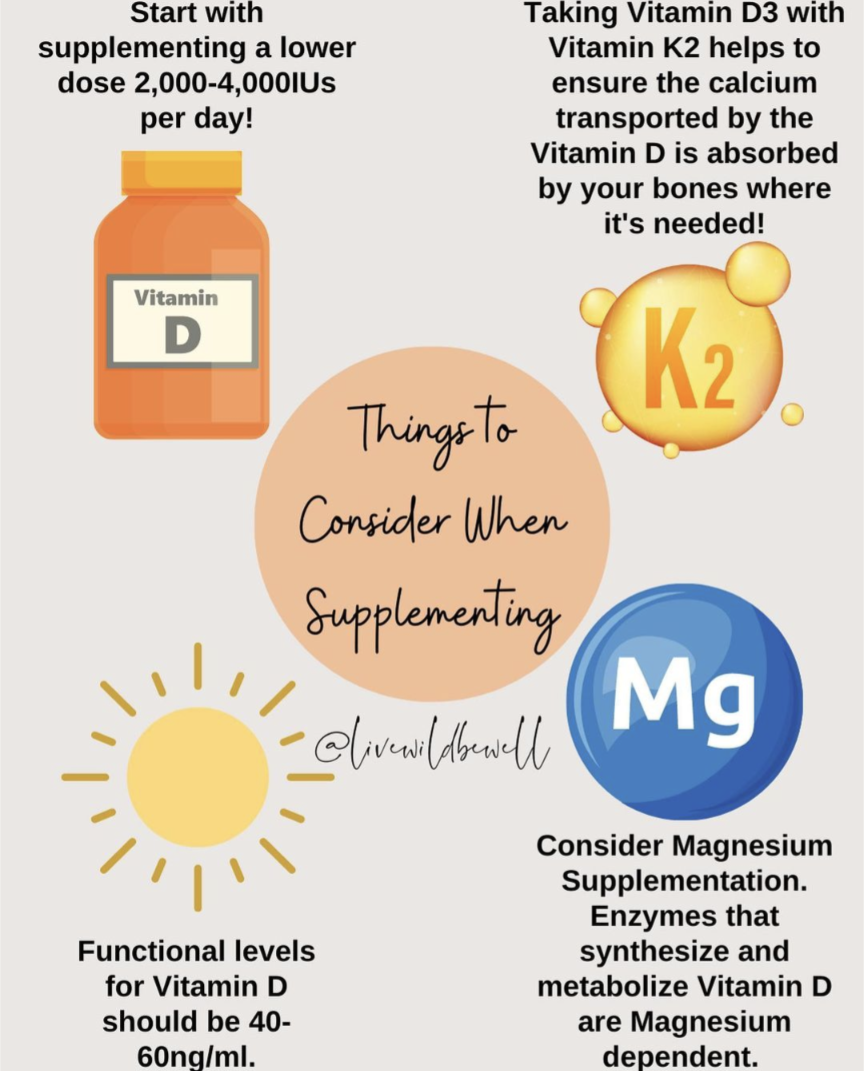All about vitamin D
I get questions on vitamin D all of the time. Whether the questions pertain to low vitamin D levels, whether or not to supplement and how much sun exposure can really move the needle for vitamin d levels.
Historically, I have been a proponent of optimizing and increasing vitamin d levels through foods and time in the sun. And I still believe that’s the best way to maintain optimal vitamin D levels.
t’s important to focus on getting optimal sun exposure each day. Try to follow these steps to ensure you’re maximizing your vitamin D absorption:
Try to be in the sun between the hours of 11-2 when the sun is at its highest point to increase absorption rates
Stay in the sun without sunscreen and sunglasses for 45 minutes to allow light to penetrate the eyes and skin - this helps increase vitamin D levels in the body
Once you reach the 30-45 mark, you can either go back inside or add sun protective clothing (or my favorite Toups and Co Sun Balm)
The next thing I like to have clients focus on is getting in plenty of vitamin D rich foods. Some of my favorite foods include:
Sardines
Eggs
Cod liver oil
Salmon
Raw and low pasteurized milk products
There are certain times when we have to look at supplementing vitamin D on top of following the above suggestions. Optimally, I like to have vitamin D levels in clients range from 45-55. So I’m not a fan of supplementing consistently, but if we need to get numbers up, we can look to add in a vitamin D supplement to support this. It’s important to find a vitamin D supplement that has K2 in it and look to add magnesium as well. These vitamins and minerals both support vitamin D absorption and play a large role in upping vitamin D levels.
In my client work with preconception and prenatal clients, I have seen through data and research how higher vitamin d levels help support fertility, in both men and women, and help ward off prenatal diagnoses like preeclampsia, preterm labor and more. According to a study in PubMed, Vitamin D deficiency was related to a higher risk of maternal complications including preeclampsia, impaired glucose tolerance, and cesarean section rate, and neonatal complications including low birthweight, neonatal hypocalcemia seizure, and impaired skeletal, lung and immune development.
Here are a few of my favorite vitamin D supplements to recommend:




